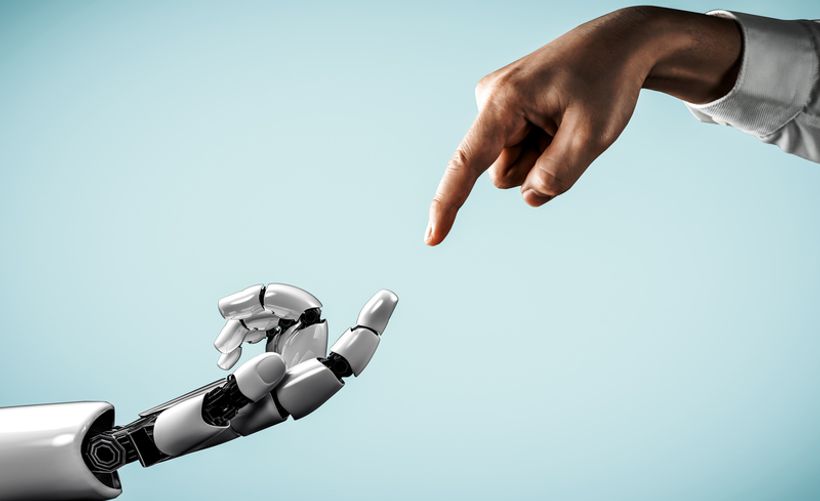
At the upcoming HR Days conference, we explore a key question: How is artificial intelligence shaping the labor market? Join us as we explore together the fears, possibilities, opportunities and threats arising from this dynamic meeting of technology and human potential.
Endlessly captivating and mesmerizing. Intriguing. Terrifying.
Ever since the world first heard about it in 1955 thanks to computer scientist John McCarthy, artificial intelligence has both inspired and fascinated us. Her interestingness has always been intertwined with a certain amount of fear. And while some give us hope, predicting that the development of AI will make our lives simpler, faster and better, others warn us that we should allow it too much autonomy.
For years we have been hearing about ruthless artificial intelligence that will take over human jobs, pushing large numbers of people into the labor market. They will decide for us, create some of their own rules and, ultimately, exercise their own will. You already know how it goes in a whole series of films made on the subject. And maybe there is a third, so far unexplored scenario that will befall us...
The question of the impact of artificial intelligence on our future, with an emphasis on its real application, the potential for positive developments and the threats it brings to our working environments, will be found at the upcoming HR Days conference, which will be held on 8 and May 9 in Rovinj.
With the lecture 'The good, the bad & the ugly of AI', artificial intelligence expert Geertrui Mieke De Ketelaere will reveal to us everything we didn't know we wanted to know about AI- in the world of HR.
There is still a big misconception in the foreground
As a prelude to her lecture at the upcoming conference, we sat down with Geertrui for a 'cup of conversation', discovering all the ways in which AI is shaping, changing and rethinking the way we live and work.
During a career spanning almost three decades, Mieke de Ketelaere has worked in a number of large technology companies such as IBM and Microsoft, and her personal focus is currently on the ethical considerations of the role of artificial intelligence and the creation of responsible practices, necessary to build trust and ensure positive the impact of AI.
Prema njenom mišljenju, kada pričamo o umjetnoj inteligenciji i njenim dosadašnjim, kao i budućim učincima na svijet, i dalje najčešće u prvi plan stavljamo veliku i raširenu zabludu. Onu o “superinteligentnom AI-ju koja preuzima svijet”.
“This idea, often popularized by science fiction, suggests that AI systems will surpass human intelligence and potentially pose an existential threat to humanity. Although all the advances made in artificial intelligence have been remarkable and continue to develop, the concept of an autonomous, conscious AI system with the intention and ability to dominate humanity is still present. However, it is mostly speculative and exaggerated“. Current AI systems lack the right to understand, awareness and the ability to make independent decisions, he explains. He adds that AI operates within predefined parameters set by human programmers, aimed at performing different tasks or solving specific problems.
„Odgovorni razvoj i implementacija AI-a prioritetiziraju etička razmatranja, sigurnosne mjere i ljudsku kontrolu. Ključno je razlikovati stvarni napredak u razvoju tehnologije i senzacionalističke prikaze u popularnoj kulturi“, poručuje Mieke De Ketelaere.
Despite the advances made so far related to artificial intelligence, we continue to put the widespread misconception of 'superintelligent AI that will take over the world' in the foreground.
Entering the era of increased efficiency and innovation
In recent times, the field of artificial intelligence has witnessed a series of innovations that seamlessly integrate into our daily lives. Among them, natural language processing has seen notable improvements, spurring the development of advanced virtual assistants, chatbots, and language translation services that promise to redefine human-computer interactions.
“This breakthrough has the potential to revolutionize industries such as gaming, design and entertainment by creating realistic images, videos and virtual environments. The advent of Edge AI ushered in a new era of embedding artificial intelligence directly into devices. This facilitates rapid data processing and real-time decision-making, fueling the growth of smart devices, autonomous vehicles, and the Internet of Things (IoT) into mainstream applications,”he states.
On the ethical side, AI has attracted considerable attention, leading to the development of tools and practices to mitigate bias.
"The dynamic nature of AI ensures that it is important to stay informed about the latest developments in order to understand its evolving impact on our everyday experiences," concluded Mieke De Katelaere.".
While these innovations in AI continue to unfold, their rapid integration into everyday life depends on factors such as regulatory frameworks, social acceptance and the maturation of these revolutionary technologies, he notes.
„Dinamična priroda AI-a osigurava da je važno biti informiran o najnovijim razvojima kako bismo razumjeli njegov evoluirajući utjecaj na naša svakodnevna iskustva“, zaključila je Mieke De Katelaere.
Join us on 12. HR Days conference and be one step ahead in discovering new knowledge and possibilities of applying artificial intelligence in human resources management.





